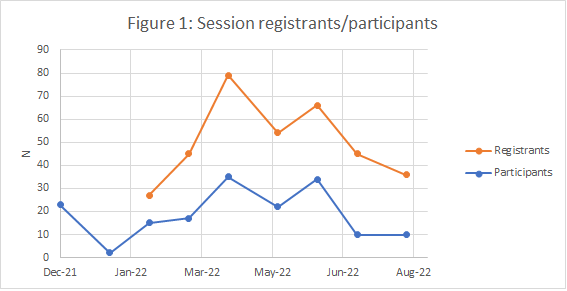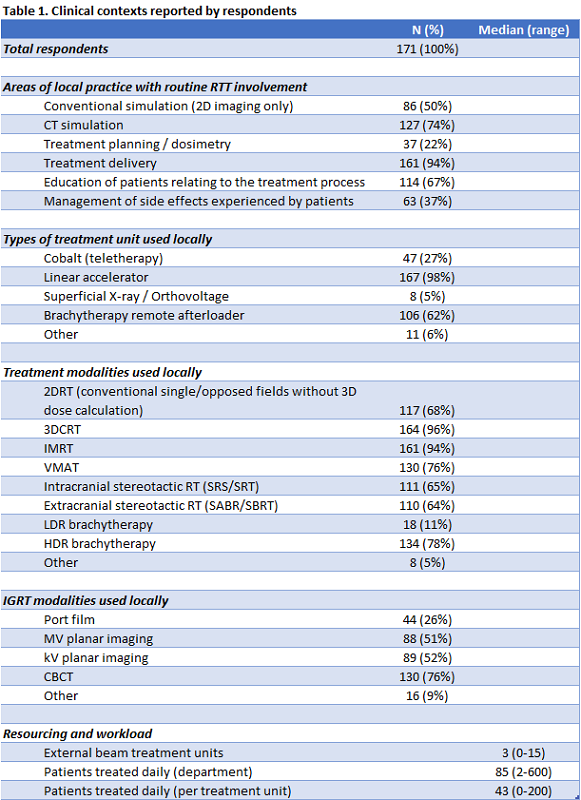Online education sessions for RTTs of low- and middle-income countries in Asia-Pacific
PD-0731
Abstract
Online education sessions for RTTs of low- and middle-income countries in Asia-Pacific
Authors: Aidan Leong1,2, Craig Opie3, Chetana Vartak4, Iain Ward5
1Bowen Icon Cancer Centre, Radiation Therapy, Wellington, New Zealand; 2University of Otago, Department of Radiation Therapy, Wellington, New Zealand; 3Royal North Shore Hospital, Northern Sydney Cancer Centre, Sydney, Australia; 4Tata Memorial Hospital, Radiation Therapy, Mumbai, India; 5Canterbury Regional Cancer & Haematology Service, Radiation Oncology, Christchurch, New Zealand
Show Affiliations
Hide Affiliations
Purpose or Objective
Starting in 2021, the Asia-Pacific Radiation Oncology Network (ASPRONET), an initiative of the IAEA, commenced online education sessions for RTTs across 19 member states within Asia-Pacific. Sessions are targeted towards participants from low- and middle-income countries with limited access to professional development activities. Here we report our initial experience launching the program, as well as survey results evaluating barriers to online participation and preferences for future online education initiatives.
Material and Methods
The first series of ASPRONET online RTT education sessions were run monthly, and themed on anatomical sites. To promote engagement, submissions were encouraged from session registrants using a slide template covering key areas of local RTT practice. Survey one (RTT-S1) was conducted during the first series to evaluate participant experience and barriers to participation. A subsequent survey (RTT-S2) at the conclusion of the first series was open to RTTs across member states, independent of session attendance, and assessed preferences for future online education initiatives.
Results
9 online RTT education sessions were run between December 2021 and August 2022. Registrants and attendees were seen to increase, and then slightly decline in latter sessions (Fig 1). Anecdotally, a strong rapport was built with repeat attendees who actively engaged in sharing local practice norms and challenges. 21 RTTs from 7 countries responded to RTT-S1. Attendees consistently (93%) reported the sessions as interesting and relevant to their clinical practice. 93% of respondents reported the clarity of audio and video as good/excellent, while 89% reported good/excellent comprehension of English used in discussion and on slides. 60% of attendees joined sessions from a smartphone or tablet. Of those unable to attend one or more sessions, 71% reported clinical workload as the main barrier. 171 RTTs from 10 countries responded to RTT-S2. Diverse clinical contexts were reported (Table 1). 93% of respondents expressed an interest in joining online RTT education sessions. Respondents also expressed a desire to engage with RTTs from diverse backgrounds (88%), discuss clinical practice interactively with other participants (82%) and gain support on a change in practice specific to their local institution (87%). A wide range of topics for online education sessions were put forward. Saturday and was the most preferred day (74%) for sessions to be hosted.


Conclusion
Our initial experience has been positive in facilitating online education sessions for RTTs of low- and middle-income countries across Asia-Pacific. Along with anecdotal learnings, survey data has identified both barriers and preferences to inform future program development. Empowering RTTs in the lowest-resourced regions remains both a key priority and challenge for our group. Increasing accessibility to online platforms present new opportunities for providing meaningful and sustainable support and information-sharing.